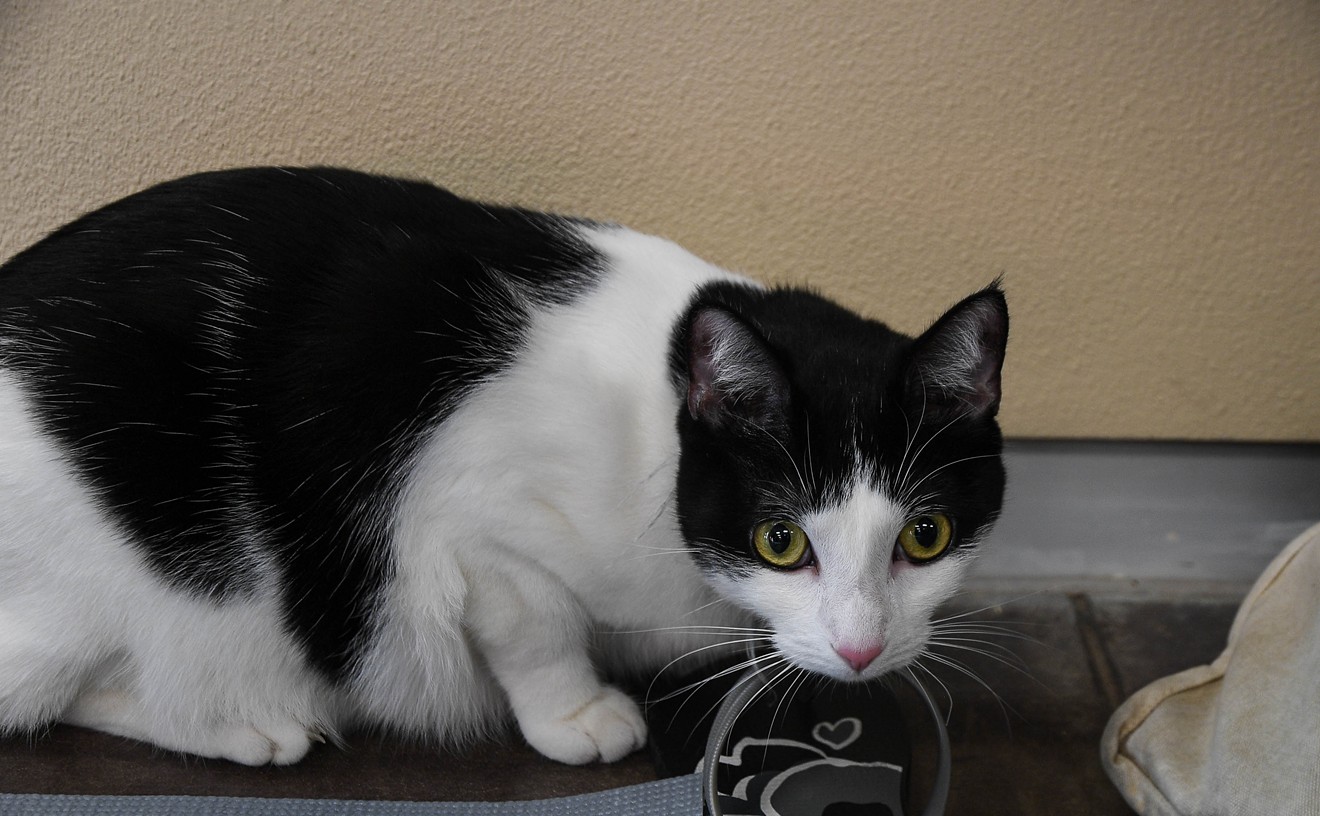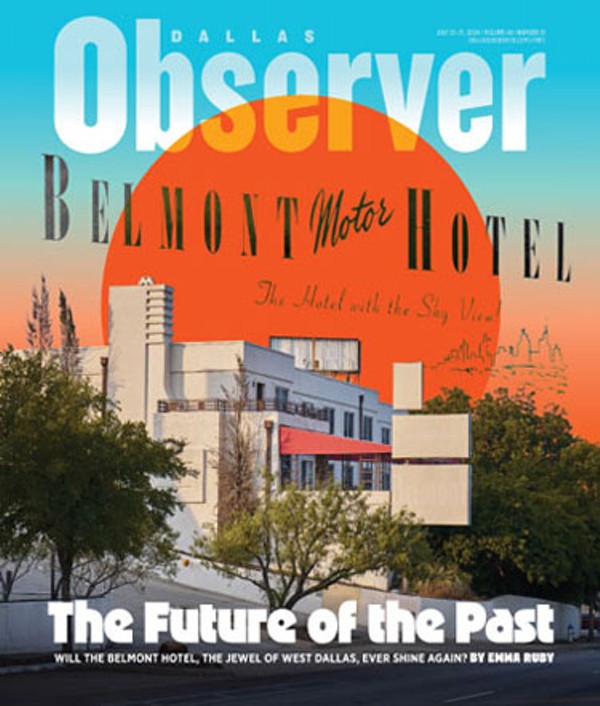If nothing is done to address climate change, says a new study commissioned by some really rich people and some ex-politicians, Texas is going be practically unlivable by the time we get to the back half of the 21st century. Average temperatures will increase, the study says, leading to more than 100 days a year of dangerous heat. Rising sea levels will threaten the Gulf Coast, and severe weather will be an ever increasing problem.
The group backing the study is the mildly evocatively named Risky Business, a venture led by, among others, former New York mayor and billionaire Michael Bloomberg and former Secretary of the Treasury Hank Paulson. The study itself — "Come Heat or High Water: Climate Risk in the Southeast U.S. and Texas" — operates within the bounds of accepted scientific consensus. There's no questioning of the reality of climate change. Instead, the economic and direct risks of things continuing just as they are is reviewed. For Texas, the news is grim.
"While climate change likely will increase both summer and winter average temperatures, the impact in Texas will be most evident in the number of days of extreme heat each year. During the past 30 years, the typical Texan has experienced an average of 43 days per year of temperatures above 95°F. But by mid-century, that number is likely to reach up to 80 such days, and to reach up to 106 days per year by 2040-2059 — more extreme heat than any state besides Arizona experiences today," the study says.
It's a bit frustrating that the new estimations use 95 degrees as a benchmark, because it makes comparisons inexact, but 2011, North Texas' most hellacious summer in the last 30 years, saw 70 days with temperatures of more than 100 degrees.
Consistent heat at that level means more heat-related deaths, more energy costs and problems for the Texas economy-driving ag industry.
"Texas faces significant climate risks to its commodity crop output if we stay on our current greenhouse gas emissions pathway. Our research focused on two specific climate impacts changes in heat and precipitation — and their interaction with four major commodity crops in the Southeast: corn, soybeans, cotton and wheat. Crops are very sensitive to changes in their growing environment, particularly temperature. Small increases in temperatures may benefit plants; however, most crops have a specific threshold beyond which yields decline dramatically. Overall, impacts from climate-related temperature and precipitation changes are highly crop- and location-specific," the study says.
Texas' wheat crop will actually be a silver lining for the state if current patterns continue. Wheat benefits from the carbon fertilization effect. When carbon dioxide concentrations increase, as they are currently, wheat yields should increase as well, according to the Bloomberg-funded researchers.
The warnings presented in the study are targeted at the business communities of the states — i.e., all of them — that will be affected by climate change. Former HUD Secretary Henry Cisneros is a part of Risky Business. The former San Antonio mayor reached out to Texas specifically Tuesday.
"Texas is one of the most vulnerable states to climate change in the United States. Dangerous levels of extreme heat are projected to threaten lives and dramatically reduce labor productivity. Business leaders across Texas need to take a hard look at this report and take steps to reduce these risks," he said.
[
{
"name": "Air - MediumRectangle - Inline Content - Mobile Display Size",
"component": "18855504",
"insertPoint": "2",
"requiredCountToDisplay": "2",
"watchElement": ".fdn-content-body",
"astAdList": [
{
"adType": "rectangle",
"displayTargets": "mobile"
}
]
},{
"name": "Editor Picks",
"component": "17105533",
"insertPoint": "4",
"requiredCountToDisplay": "1",
"watchElement": ".fdn-content-body",
"astAdList": [
{
"adType": "rectangle",
"displayTargets": "desktop|tablet"
},{
"adType": "rectangle",
"displayTargets": "desktop|tablet|mobile"
}
]
},{
"name": "Inline Links",
"component": "18349797",
"insertPoint": "8th",
"startingPoint": 8,
"requiredCountToDisplay": "7",
"maxInsertions": 25
},{
"name": "Air - MediumRectangle - Combo - Inline Content",
"component": "17105532",
"insertPoint": "8th",
"startingPoint": 8,
"requiredCountToDisplay": "7",
"maxInsertions": 25,
"watchElement": ".fdn-content-body",
"astAdList": [
{
"adType": "rectangle",
"displayTargets": "desktop|tablet"
},{
"adType": "rectangle",
"displayTargets": "desktop|tablet|mobile"
}
]
},{
"name": "Inline Links",
"component": "18349797",
"insertPoint": "8th",
"startingPoint": 12,
"requiredCountToDisplay": "11",
"maxInsertions": 25
},{
"name": "Air - Leaderboard Tower - Combo - Inline Content",
"component": "17105535",
"insertPoint": "8th",
"startingPoint": 12,
"requiredCountToDisplay": "11",
"maxInsertions": 25,
"watchElement": ".fdn-content-body",
"astAdList": [
{
"adType": "leaderboardInlineContent",
"displayTargets": "desktop|tablet"
},{
"adType": "tower",
"displayTargets": "mobile"
}
]
}
]











